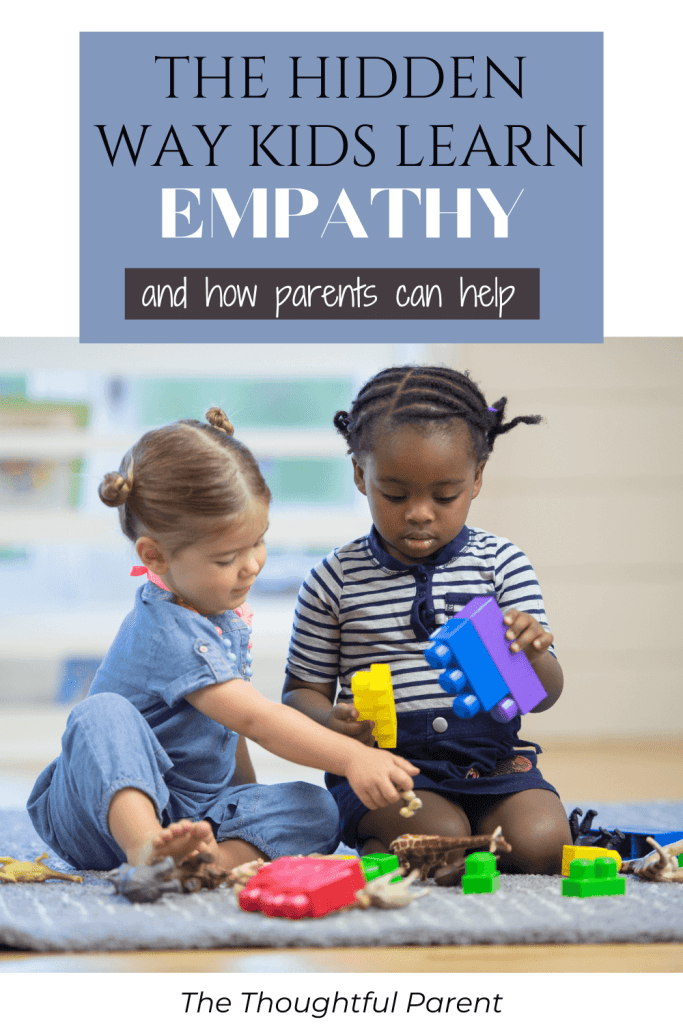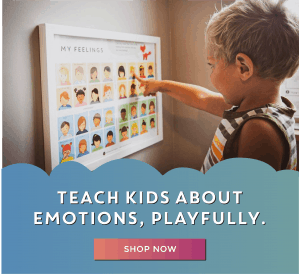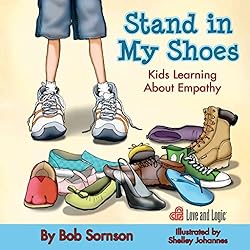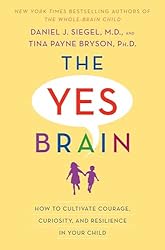[ad_1]
Sneak peek: The event of social expertise and perspective taking in children is a kind of milestones that always will get neglected. By understanding this hidden a part of mind improvement, we’ve perception into an important a part of the beginnings of empathy.
As mother and father, I feel certainly one of our most important objectives is to assist our youngsters develop an understanding and empathy for different individuals. In case you are the guardian of a toddler, you recognize that instilling this concept of empathy appears an nearly unimaginable activity. There’s an excellent motive for that–it is nearly unimaginable for a toddler. Most of us know that toddlers (beneath about 4 years of age) merely don’t have the cognitive or social-emotional improvement expertise to know what different individuals could be feeling or considering–a facet of social expertise generally known as perspective taking.


*This put up incorporates affiliate hyperlinks. Buying by these hyperlinks helps assist this weblog at no added price to you.
This activity is what psychologists name Concept of Thoughts–that’s the skill to know or anticipate what one other particular person is feeling or considering. In different phrases, it’s the flexibility to place your self in another person’s footwear. That is a part of a set of social expertise that’s the foundation for empathy but additionally is essential in youngsters studying issues like sharing and serving to others.

At What Age Do Kids Develop Perspective Taking?
So how do youngsters be taught this essential talent of taking one other particular person’s perspective? Researchers have lengthy believed that this skill develops in most children round 4 years of age. This video offers an important instance of the distinction between a 3 and 4-year-old in perspective taking skill (additionally referred to as Concept of Thoughts):
After viewing this video, it’s nearly as if one thing magical occurs between age 3 and 4 that helps children be taught this talent. In a way, that is true. Kids’s brains are consistently altering and making new circuits that make new thought processes attainable. Nevertheless, new analysis is exhibiting that that how mother and father discuss to their youngsters may support on this perspective-taking skill.
Perspective Taking: Phrases Matter
A latest research printed within the journal Baby Growth confirmed that youngsters whose mother and father described extra about how different individuals could be feeling or considering had higher perspective-taking expertise than these whose moms didn’t use this descriptive language.
In some respects, this research appears form of apparent. You’ll anticipate that speaking to a baby about taking one other particular person’s perspective would assist them be taught this skill. Once you actually contemplate this, although, it’s fairly wonderful. The cognitive talent it takes for a teenager to know the angle of one other particular person is fairly complicated and to suppose that only a guardian speaking to them about this influences how rapidly they be taught this talent.
You might also get pleasure from: Social-Emotional Growth: The Final Information for Mother and father
The opposite compelling side of the research is the discovering that youngsters who had delays in language acquisition additionally had delays in perspective-taking skill. This offers additional proof that the hyperlink between language and perspective taking skill is an actual one. The researchers imagine that particular elements of language acquisition (e.g., studying possessive phrases) assist youngsters achieve the cognitive flexibility wanted to take one other particular person’s perspective.
How Do You Observe Perspective Taking?
1. Level out different youngsters’s feelings if you see them.
Even younger youngsters are very conscious when different children get damage or are upset. Does your baby discover or appear involved when she hears one other baby crying? Use this as a studying alternative–discuss to your baby about how the opposite baby could be feeling. For instance, you may ask, “Why is that little boy unhappy? Do you suppose he’s unhappy or indignant? What do you do when you find yourself unhappy?”
2. Books can educate classes.
Youngsters have a tendency to note small particulars about social expertise and perspective-taking in books that we’d miss. They usually ask issues like, “Why is that bear unhappy?” or “Why is that woman laughing.” Reap the benefits of these conditions and clarify the feelings you’re seeing within the story. Try this on-line bookshelf for assets on toddler emotional improvement.
3. Speak about feelings at house.
Mother and father have combined emotions about exhibiting an excessive amount of emotion in entrance of youngsters. We typically wish to put up a “robust entrance” and never let our children see us cry or really feel unhappy. I feel there may be some worth to this—we don’t need to burden our children with points that will not be acceptable for his or her developmental degree. Nevertheless, I don’t suppose it’s burdensome to let our children see us as emotional beings once in a while. After we expertise the lack of a cherished one or are apprehensive a couple of buddy, our children will in all probability discover our change in temper. In the event that they ask, you may take the time to elucidate why you’re unhappy (in kid-appropriate phrases). This would possibly give them a bit extra perception and empathy in your emotions and people of others.
4. Deal with setting boundaries on conduct, not feelings.
As this nice article factors out, one key to authoritative parenting (which, by the best way, is related to favorable impacts for teenagers) is setting boundaries and limits on their conduct, not their feelings. Permit children the emotional freedom to really feel how they really feel, even when it’s ugly at instances (howdy tantrum). Analysis continues to indicate that probably the most efficient mother and father don’t induce guilt journeys or psychological methods. Slightly, you may set a agency restrict on conduct and assist children deal with the feelings that will comply with. Over time, this expertise with genuine emotion (and steerage from you) will assist them perceive the feelings of others.
5. Fake play and position play.
Younger youngsters love faux play and it simply so occurs it’s an superior approach to encourage perspective-taking expertise. Give it some thought—when a baby pretends to be one other particular person or character, they’ve to know (at the least a bit) that particular person’s emotions and actions. That is perspective taking in motion! They’re actually placing themselves into another person’s footwear to faux to be that particular person. Encourage and foster faux play in younger youngsters in any approach you may. You would possibly ask your preschooler how the particular person they’re pretending to be would really feel or act in numerous conditions. Enjoyable and studying are all wrapped in a single exercise!
Peacemakers: A easy recreation designed to nurture social and emotional expertise, self-love, a progress mindset, 
Though this research is attention-grabbing, it’s value noting {that a} baby does nonetheless must have a sure diploma of cognitive improvement with a purpose to foster perspective taking and empathy. Regardless of how a lot you discuss to your 2-year-old about how one other particular person is feeling, they most definitely aren’t going to essentially perceive the opposite particular person’s perspective. This use of description language, nevertheless, will hopefully assist your baby later after they have the cognitive maturity to understand the concept of taking one other particular person’s perspective.
Associated studying: Self-Regulation in Toddlers: Why Language Issues Extra for Boys
Wish to perceive extra about baby improvement milestones and how you can assist your baby? Join The Considerate Guardian e-newsletter on Substack.
Associated Sources:
Supply: Farrant BM, Maybery MT, & Fletcher J (2012). Language, cognitive flexibility, and express false perception understanding: longitudinal evaluation in typical improvement and particular language impairment. Baby improvement, 83 (1), 223-35 PMID: 22188484
[ad_2]
Supply hyperlink



